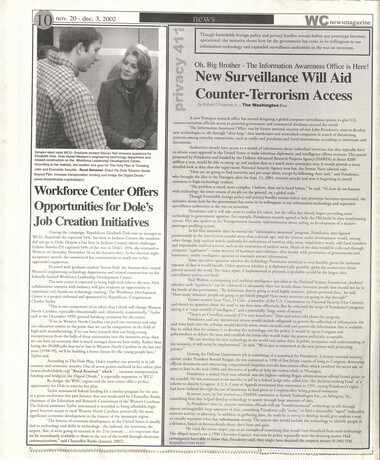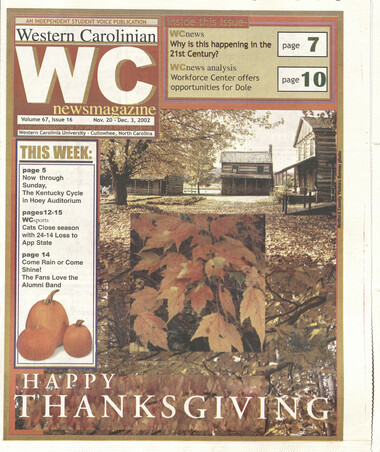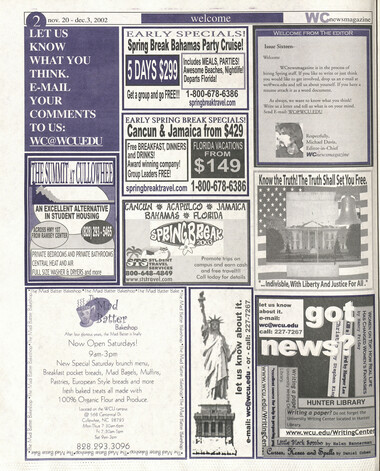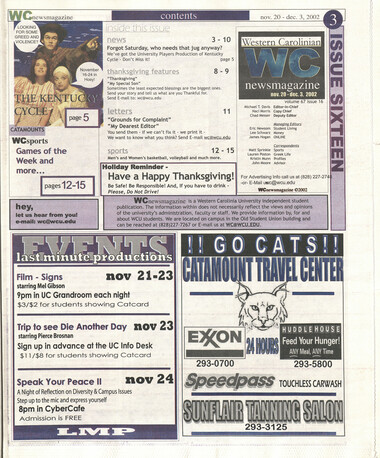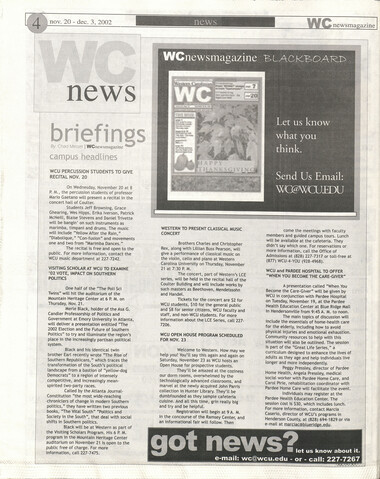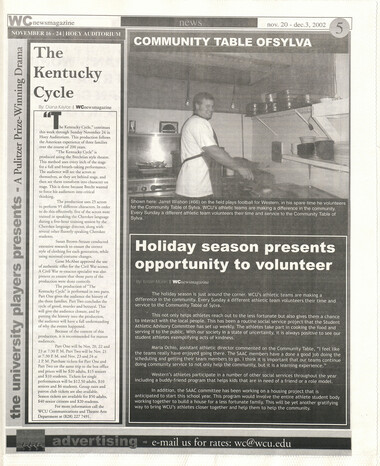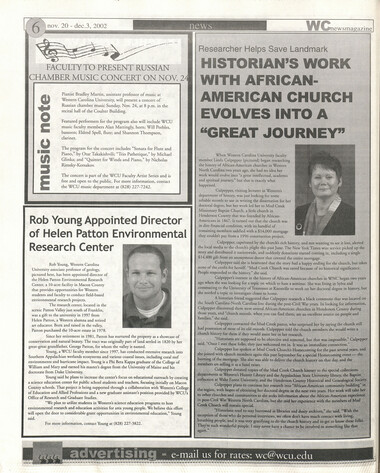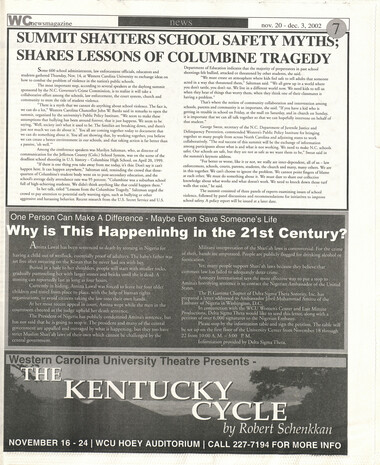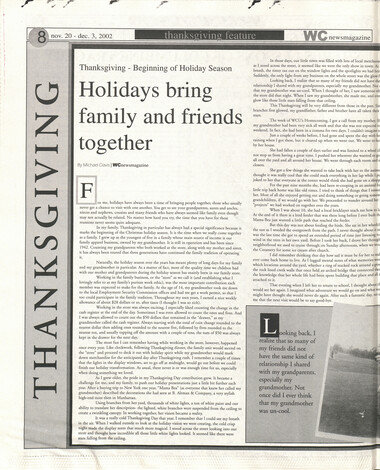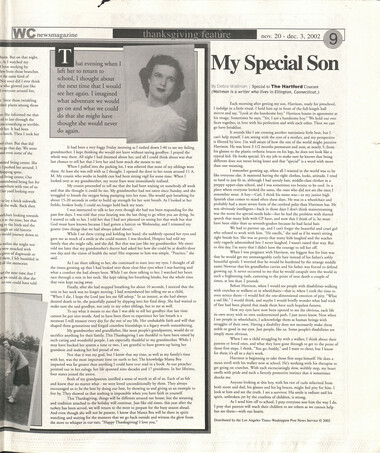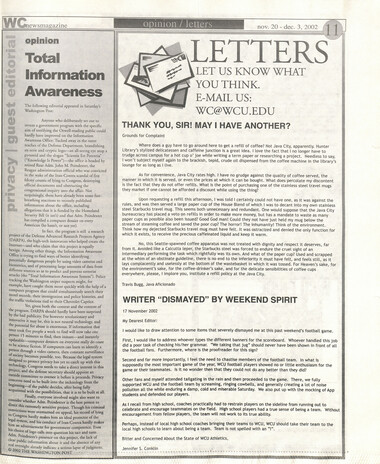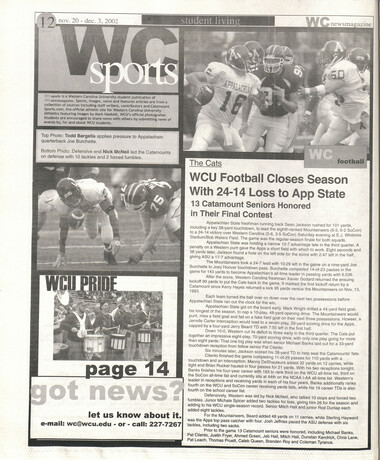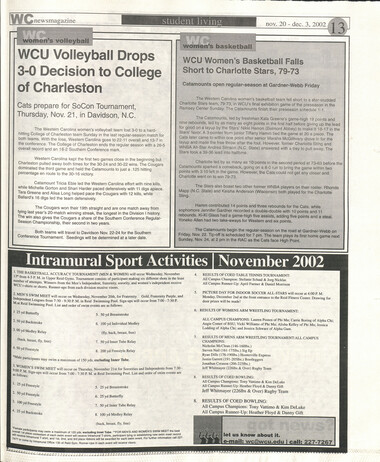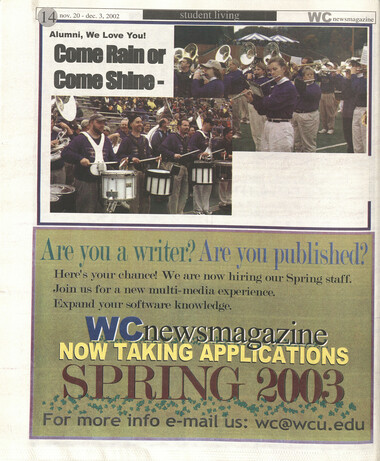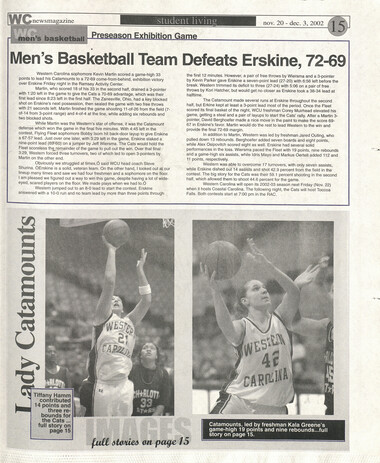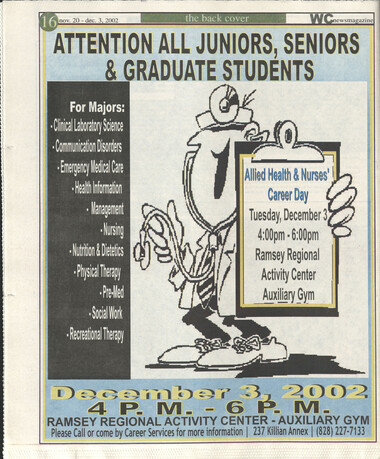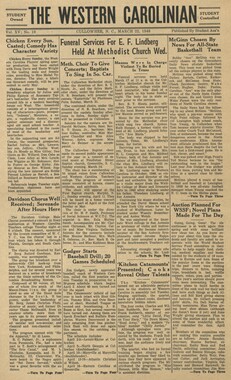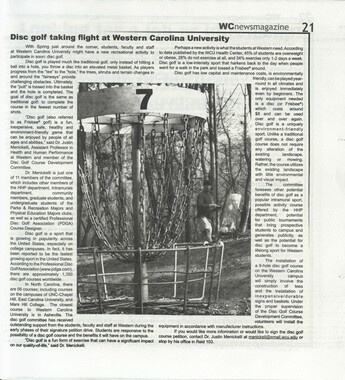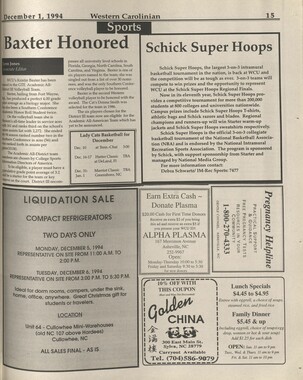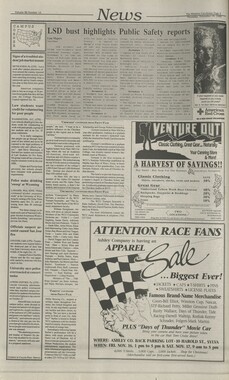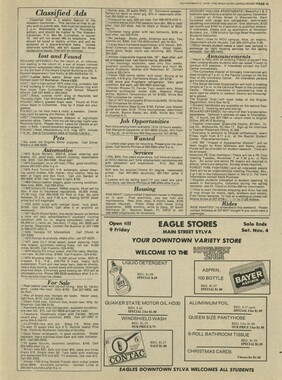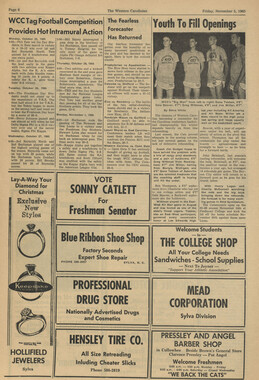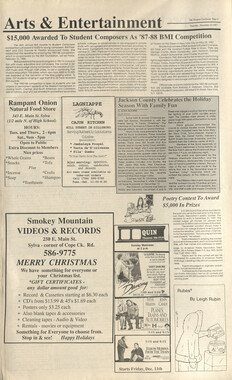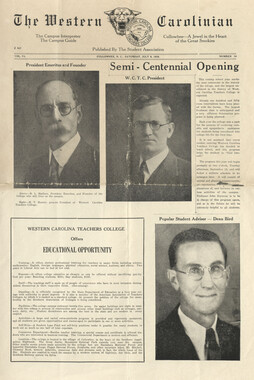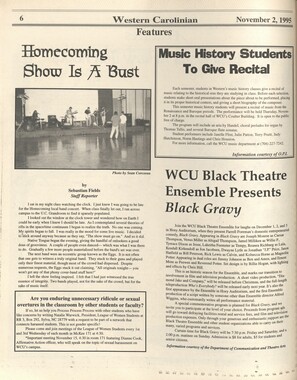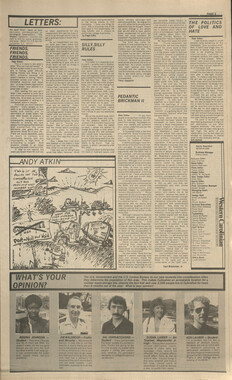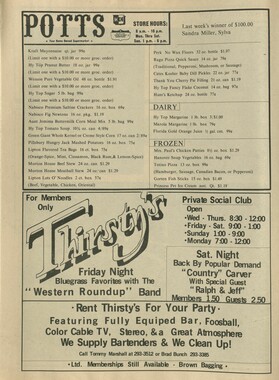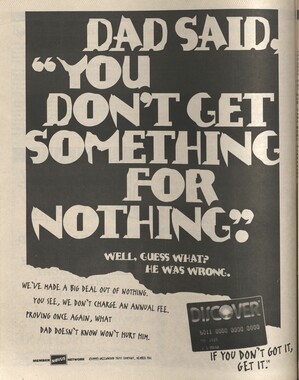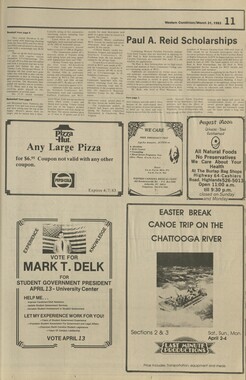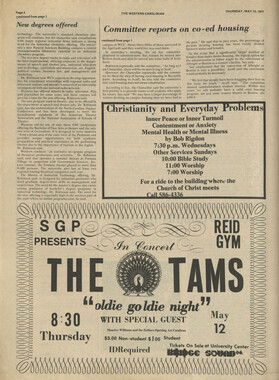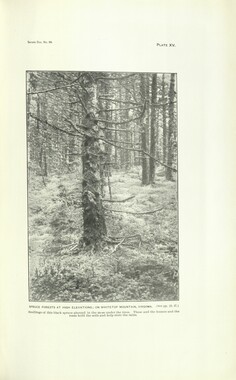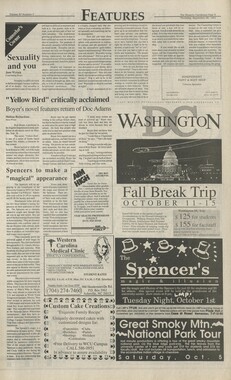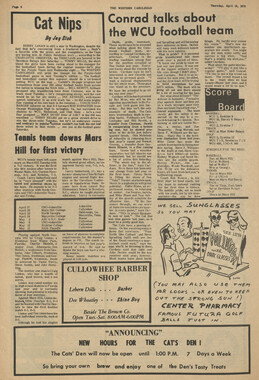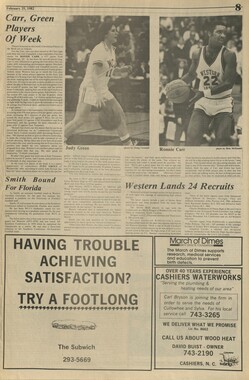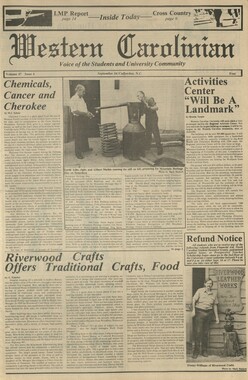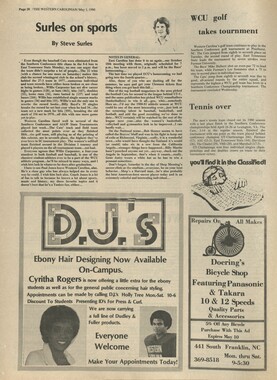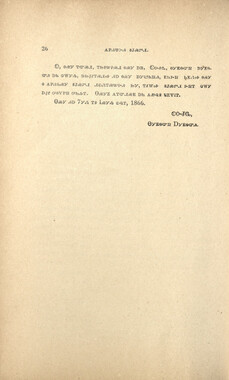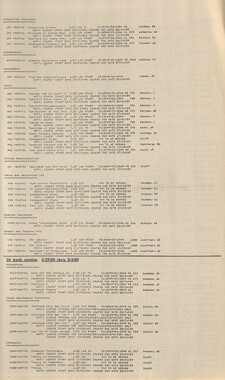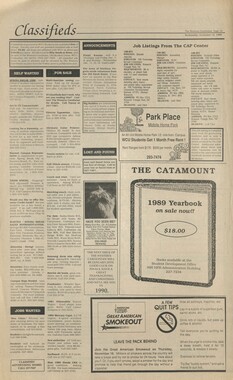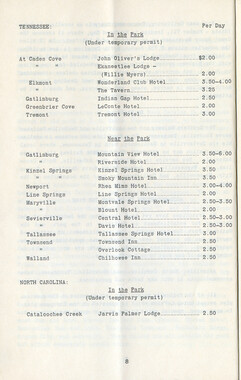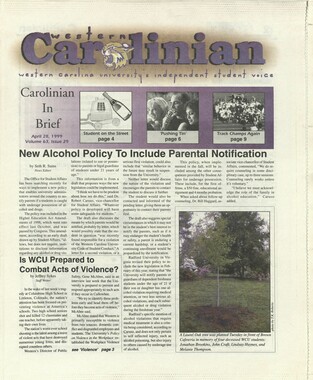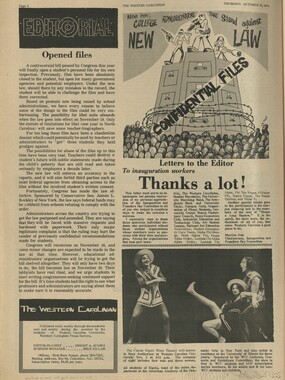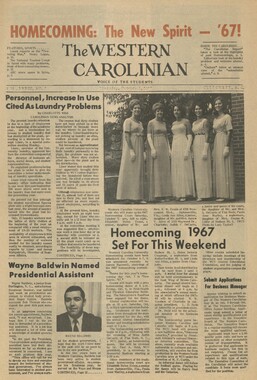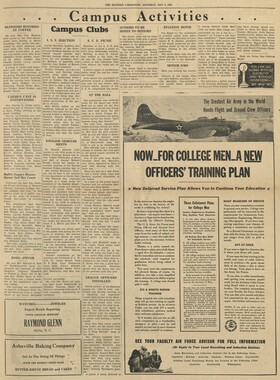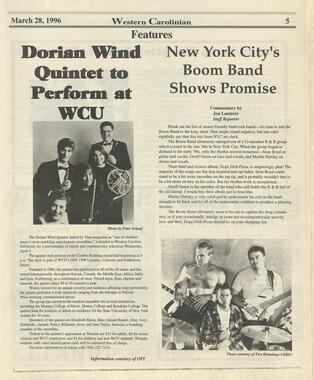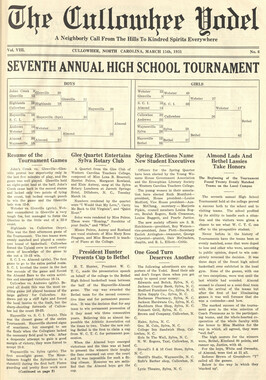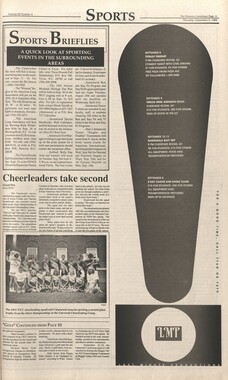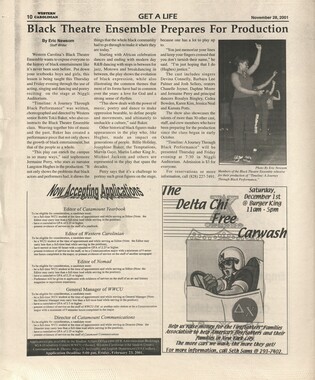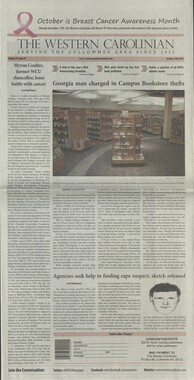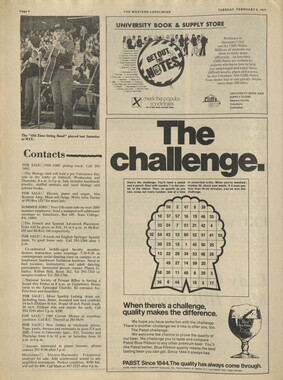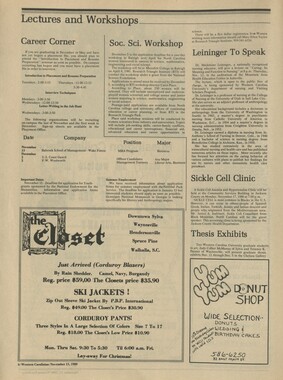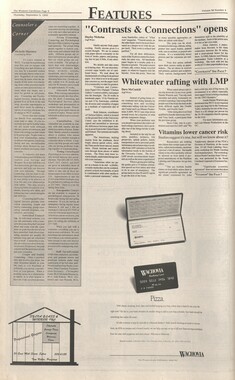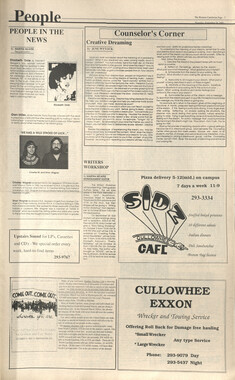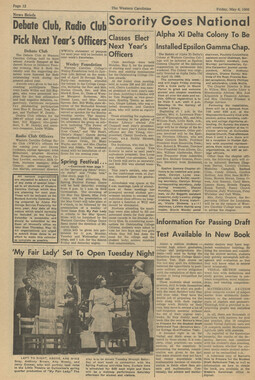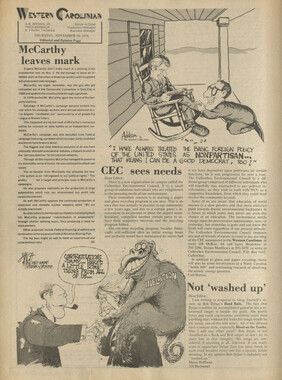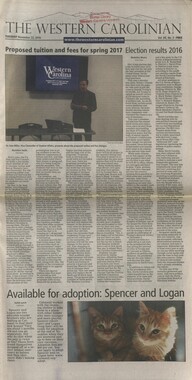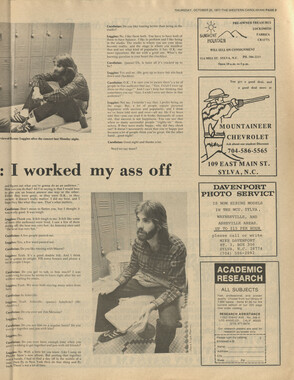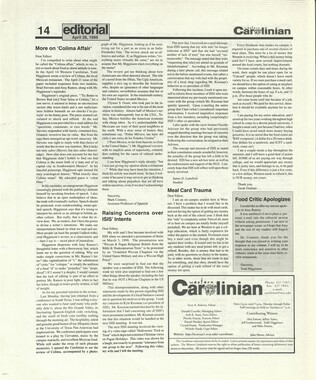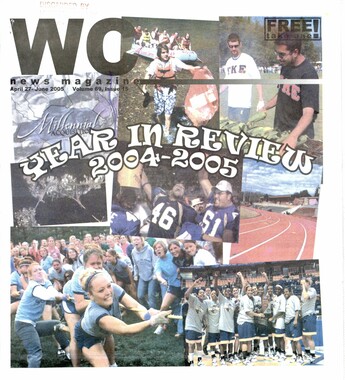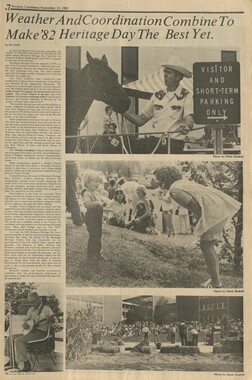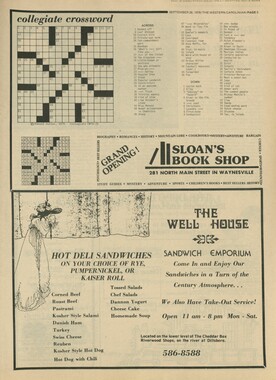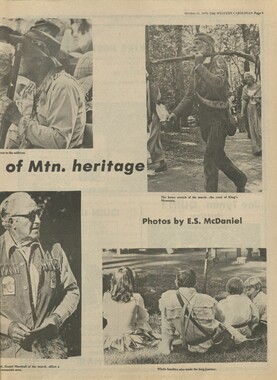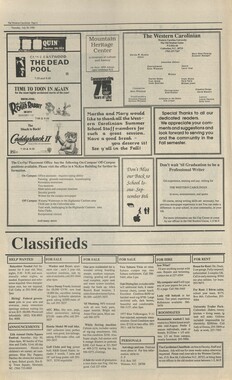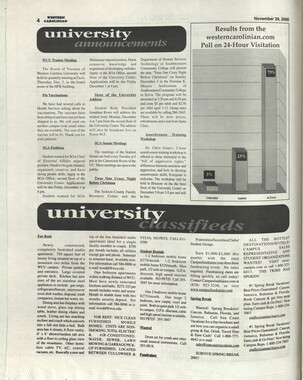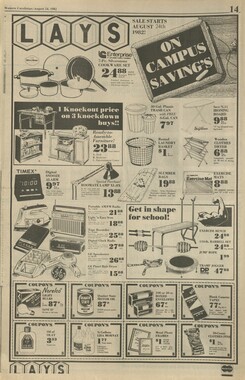Western Carolina University (20)
View all
- Canton Champion Fibre Company (2308)
- Cherokee Traditions (291)
- Civil War in Southern Appalachia (165)
- Craft Revival (1942)
- Great Smoky Mountains - A Park for America (2946)
- Highlights from Western Carolina University (430)
- Horace Kephart (941)
- Journeys Through Jackson (159)
- LGBTQIA+ Archive of Jackson County (85)
- Oral Histories of Western North Carolina (314)
- Picturing Appalachia (6873)
- Stories of Mountain Folk (413)
- Travel Western North Carolina (160)
- Western Carolina University Fine Art Museum Vitreograph Collection (129)
- Western Carolina University Herbarium (92)
- Western Carolina University: Making Memories (738)
- Western Carolina University Publications (2491)
- Western Carolina University Restricted Electronic Theses and Dissertations (146)
- Western North Carolina Regional Maps (71)
- World War II in Southern Appalachia (131)
University of North Carolina Asheville (6)
View all
- Allanstand Cottage Industries (62)
- Appalachian National Park Association (53)
- Bennett, Kelly, 1890-1974 (1463)
- Berry, Walter (76)
- Brasstown Carvers (40)
- Carver, George Washington, 1864?-1943 (26)
- Cathey, Joseph, 1803-1874 (1)
- Champion Fibre Company (233)
- Champion Paper and Fibre Company (297)
- Cherokee Indian Fair Association (16)
- Cherokee Language Program (22)
- Crowe, Amanda (40)
- Edmonston, Thomas Benton, 1842-1907 (7)
- Ensley, A. L. (Abraham Lincoln), 1865-1948 (275)
- Fromer, Irving Rhodes, 1913-1994 (70)
- George Butz (BFS 1907) (46)
- Goodrich, Frances Louisa (120)
- Grant, George Alexander, 1891-1964 (96)
- Heard, Marian Gladys (60)
- Kephart, Calvin, 1883-1969 (15)
- Kephart, Horace, 1862-1931 (313)
- Kephart, Laura, 1862-1954 (39)
- Laney, Gideon Thomas, 1889-1976 (439)
- Masa, George, 1881-1933 (61)
- McElhinney, William Julian, 1896-1953 (44)
- Niggli, Josephina, 1910-1983 (10)
- North Carolina Park Commission (105)
- Osborne, Kezia Stradley (9)
- Owens, Samuel Robert, 1918-1995 (11)
- Penland Weavers and Potters (36)
- Roberts, Vivienne (15)
- Roth, Albert, 1890-1974 (142)
- Schenck, Carl Alwin, 1868-1955 (1)
- Sherrill's Photography Studio (2565)
- Southern Highland Handicraft Guild (127)
- Southern Highlanders, Inc. (71)
- Stalcup, Jesse Bryson (46)
- Stearns, I. K. (213)
- Thompson, James Edward, 1880-1976 (226)
- United States. Indian Arts and Crafts Board (130)
- USFS (683)
- Vance, Zebulon Baird, 1830-1894 (1)
- Weaver, Zebulon, 1872-1948 (58)
- Western Carolina College (230)
- Western Carolina Teachers College (282)
- Western Carolina University (2008)
- Western Carolina University. Mountain Heritage Center (18)
- Whitman, Walt, 1819-1892 (10)
- Wilburn, Hiram Coleman, 1880-1967 (73)
- Williams, Isadora (3)
- Cain, Doreyl Ammons (0)
- Crittenden, Lorraine (0)
- Rhodes, Judy (0)
- Smith, Edward Clark (0)
- Appalachian Region, Southern (2569)
- Asheville (N.C.) (1923)
- Avery County (N.C.) (26)
- Blount County (Tenn.) (195)
- Buncombe County (N.C.) (1672)
- Cherokee County (N.C.) (283)
- Clay County (N.C.) (555)
- Graham County (N.C.) (236)
- Great Smoky Mountains National Park (N.C. and Tenn.) (519)
- Haywood County (N.C.) (3569)
- Henderson County (N.C.) (70)
- Jackson County (N.C.) (4912)
- Knox County (Tenn.) (35)
- Knoxville (Tenn.) (13)
- Lake Santeetlah (N.C.) (10)
- Macon County (N.C.) (420)
- Madison County (N.C.) (215)
- McDowell County (N.C.) (39)
- Mitchell County (N.C.) (132)
- Polk County (N.C.) (35)
- Qualla Boundary (982)
- Rutherford County (N.C.) (76)
- Swain County (N.C.) (2182)
- Transylvania County (N.C.) (270)
- Watauga County (N.C.) (12)
- Waynesville (N.C.) (86)
- Yancey County (N.C.) (72)
- Aerial Photographs (3)
- Aerial Views (60)
- Albums (books) (4)
- Articles (1)
- Artifacts (object Genre) (228)
- Bibliographies (1)
- Biography (general Genre) (2)
- Cards (information Artifacts) (38)
- Clippings (information Artifacts) (191)
- Copybooks (instructional Materials) (3)
- Crafts (art Genres) (622)
- Depictions (visual Works) (21)
- Design Drawings (1)
- Drawings (visual Works) (185)
- Envelopes (73)
- Exhibitions (events) (1)
- Facsimiles (reproductions) (1)
- Fiction (general Genre) (4)
- Financial Records (12)
- Fliers (printed Matter) (67)
- Glass Plate Negatives (381)
- Guidebooks (2)
- Internegatives (10)
- Interviews (815)
- Land Surveys (102)
- Letters (correspondence) (1013)
- Manuscripts (documents) (618)
- Maps (documents) (177)
- Memorandums (25)
- Minutes (administrative Records) (59)
- Negatives (photographs) (6090)
- Newsletters (1290)
- Newspapers (2)
- Notebooks (8)
- Occupation Currency (1)
- Paintings (visual Works) (1)
- Pen And Ink Drawings (1)
- Periodicals (193)
- Personal Narratives (10)
- Photographs (12976)
- Plans (maps) (1)
- Poetry (5)
- Portraits (4568)
- Postcards (329)
- Programs (documents) (181)
- Publications (documents) (2443)
- Questionnaires (65)
- Relief Prints (26)
- Sayings (literary Genre) (1)
- Scrapbooks (282)
- Sheet Music (2)
- Slides (photographs) (402)
- Songs (musical Compositions) (2)
- Sound Recordings (796)
- Specimens (92)
- Speeches (documents) (18)
- Tintypes (photographs) (8)
- Transcripts (322)
- Video Recordings (physical Artifacts) (23)
- Text Messages (0)
- A.L. Ensley Collection (275)
- Appalachian Industrial School Records (7)
- Appalachian National Park Association Records (336)
- Axley-Meroney Collection (2)
- Bayard Wootten Photograph Collection (20)
- Bethel Rural Community Organization Collection (7)
- Blumer Collection (5)
- C.W. Slagle Collection (20)
- Canton Area Historical Museum (2110)
- Carlos C. Campbell Collection (462)
- Cataloochee History Project (64)
- Cherokee Studies Collection (4)
- Daisy Dame Photograph Album (5)
- Daniel Boone VI Collection (1)
- Doris Ulmann Photograph Collection (112)
- Elizabeth H. Lasley Collection (1)
- Elizabeth Woolworth Szold Fleharty Collection (4)
- Frank Fry Collection (95)
- George Masa Collection (173)
- Gideon Laney Collection (452)
- Hazel Scarborough Collection (2)
- Hiram C. Wilburn Papers (28)
- Historic Photographs Collection (236)
- Horace Kephart Collection (861)
- Humbard Collection (33)
- Hunter and Weaver Families Collection (1)
- I. D. Blumenthal Collection (4)
- Isadora Williams Collection (4)
- Jesse Bryson Stalcup Collection (47)
- Jim Thompson Collection (224)
- John B. Battle Collection (7)
- John C. Campbell Folk School Records (80)
- John Parris Collection (6)
- Judaculla Rock project (2)
- Kelly Bennett Collection (1482)
- Love Family Papers (11)
- Major Wiley Parris Civil War Letters (3)
- Map Collection (12)
- McFee-Misemer Civil War Letters (34)
- Mountain Heritage Center Collection (4)
- Norburn - Robertson - Thomson Families Collection (44)
- Pauline Hood Collection (7)
- Pre-Guild Collection (2)
- Qualla Arts and Crafts Mutual Collection (12)
- R.A. Romanes Collection (681)
- Rosser H. Taylor Collection (1)
- Samuel Robert Owens Collection (94)
- Sara Madison Collection (144)
- Sherrill Studio Photo Collection (2558)
- Smoky Mountains Hiking Club Collection (616)
- Stories of Mountain Folk - Radio Programs (374)
- The Reporter, Western Carolina University (510)
- Venoy and Elizabeth Reed Collection (16)
- WCU Gender and Sexuality Oral History Project (32)
- WCU Mountain Heritage Center Oral Histories (25)
- WCU Oral History Collection - Mountain People, Mountain Lives (71)
- WCU Students Newspapers Collection (1923)
- Western North Carolina Tomorrow Black Oral History Project (69)
- William Williams Stringfield Collection (2)
- Zebulon Weaver Collection (109)
- African Americans (390)
- Appalachian Trail (35)
- Artisans (521)
- Cherokee art (84)
- Cherokee artists -- North Carolina (10)
- Cherokee language (21)
- Cherokee pottery (101)
- Cherokee women (208)
- Church buildings (189)
- Civilian Conservation Corps (U.S.) (111)
- College student newspapers and periodicals (2012)
- Dams (107)
- Dance (1023)
- Education (222)
- Floods (61)
- Folk music (1015)
- Forced removal, 1813-1903 (2)
- Forest conservation (220)
- Forests and forestry (1184)
- Gender nonconformity (4)
- Great Smoky Mountains National Park (N.C. and Tenn.) (181)
- Hunting (45)
- Landscape photography (25)
- Logging (119)
- Maps (83)
- Mines and mineral resources (8)
- North Carolina -- Maps (18)
- Paper industry (38)
- Postcards (255)
- Pottery (135)
- Railroad trains (72)
- Rural electrification -- North Carolina, Western (3)
- School integration -- Southern States (2)
- Segregation -- North Carolina, Western (5)
- Slavery (5)
- Sports (452)
- Storytelling (243)
- Waterfalls -- Great Smoky Mountains (N.C. and Tenn.) (66)
- Weaving -- Appalachian Region, Southern (280)
- Wood-carving -- Appalachian Region, Southern (328)
- World War, 1939-1945 (173)
Western Carolinian Volume 67 Number 16
Item
Item’s are ‘child’ level descriptions to ‘parent’ objects, (e.g. one page of a whole book).
-
-
nov. 20 - dec. 3, 2002 Senator-elect visits WCU- Graduate student Steven Nail answers questions for Elizabeth Dole. Dole toured Western's engineering technology department and viewed construction on the Workforce Leadership Development Center. According to her website, the number one goal for The Dole Plan is "Creating Jobs and Economic Security - Rural Renewal: Enact the Dole Tobacco Quota Buyout Plan, increase transportation funding and bridge the Digital Divide." (www.elizabethdole.org/doleplan/) WorKorce Center Offers Opportunities for Dole's Job Creation Initiatives During the campaign, Republican Elizabeth Dole was no stranger to WCU. Statewide she captured 54%, but here in Jackson County the numbers did not go to Dole. Despite a loss here in Jackson County, where challenger Erskine Bowles (D) captured 54% of the vote to Dole's 45%, she returned to Western on Saturday, November 16 as the Senator-elect. In her election night acceptance speech, she announced her commitment to reach out to her opponent's supporters. Pictured with graduate student Steven Nail, the Senator-elect toured Western's engineering technology department and viewed construction on the federally funded Workforce Leadership Development Center. The new center is expected to bring high-tech jobs to the area. New collaborative ventures with industry will give students an opportunity to experience real, hands-on technology training. The Workforce Development Center is a project endorsed and sponsored by Republican, Congressman Charles Taylor. "This is one component of an effort that I think will change Western North Carolina, especially educationally and, ultimately, economically," Taylor said at the December 1999, ground breaking ceremony for the center. "If we in Western North Carolina can pool our resources and raise our education system to the point that we can be competitive in the field of high-tech manufacturing, if we can have research that can bring young entrepreneurs from the halls of these universities into the inventive areas, then we can have an economy that is much stronger than we have today. Rather than losing the 20,000 jobs that we've lost in Western North Carolina in the last two years [1998-99], we'll be building a better future for the young people here," Taylor said. According to The Dole Plan, Dole's number one priority is in job creation and economic security. One of seven points outlined in her online plan (www.elizabethdole.org) "Rural Renewal," which .. increases transportation funding and bridge[s] the Digital Divide," is especially important to WCU. By design, the WNC region and the new center offer a perfect opportunity for Dole to exercise her plan. Taylor announced federal funding for a similar program for the area at a press conference this past January that was moderated by Chancellor Bardo, chairman of the Education and Research Consortium of the Western Carolinas. The federal assistance Taylor announced is intended to bring affordable high- speed Internet access to rural Western North Carolina, potentially the most significant economic development in the history of the mountain region. "The history of economic development in the United States is usually tied to technology and shifts in technology - the railroad, the interstate, the airport. But, if we're going to succeed in the 21st century ... it's important that we be immediately available to those in the rest of the world through electronic communications," said Chancellor Bardo (January 2002). news newsmagazine Though formidable. foreign policy and privacy hurdles remain before any. prototype becomes operational, the initiative shows how far the government has come imits willingness to use .infofmation technology and expanded surveillance authorities in the war. on terrorism. Oh, Big Brother - The Information Awareness Office is Here ! New Surveillance Will Aid Counter-Terrorism Access By Robert OfHatrowJr; The Washington Post A new Pentagon research office has started designing a globalcomputer surveillance system to give U.S. counter-terrorism officials access to personal government and commercial databases around the world. The Information Awareness Office, run by formef national security. adviser John Poindexter, aims to develop new technologies to sift •through •eultraælarge» data warehouses and networked computers in search of threatening patterns among everyday transactions; such as creditqrd purchases and travel •reservations; according to interviews and documents, Authorities already have access to a: wealth of information about individual terrorists, but they typically have to obtain cottrt. approval in the United States or make laborious diplomatic and intelligence efforts overseas, The system proposed by Poindexter and funded by the Defense Advanced Research Projects Agency (DARPA) at about $200 million a year, would be able to sweep. up and analyze data in a much more systematic way, Itsvould provide a more detailed look at data than the super-secret National Security Agency now has;the former Navy admiral said, "How are wc going to find terrorists and preeempt them; except by following their •trail/? said Poindexter, who brought the idea to the Pentagon after. the Sept, 2001, terrorist attacks and nowis beginning to award contracts to high-technology vendors, GCT he problem is much more complex;l believes than we've faced before?' he saide g lt?s how do we harness with technology the street smarts of people on the ground? on a global scale," Though formidable. foreign policy and privacy hurdles remain before any prototype becomes operational, the initiative shows how far the government has come in its. willingness .to use information technology and expanded surveillance authorities in the war on terrorism, Poindexter said it Wil.l take years to realize his vision; but the Office has already. begun providing some technology to government.agencies, For example$ Poindexter recently agreed to. help the FBI build its data warehousing system, He's also spoken to the Transportation Security Administration about aiding its. development of a massive passenger profiling system, In his first interview since he. started the "information awareness" program, Poindexter, who figured prominently in the Iran-Contra scandal more than a decade ago, said the systems under development would, among other things, help analysts search randomly for. indications -Of travel to risky areas, suspicious e-mails, odd fund transfers and improbable medical activity, such as. the treatments of anthrax sores, Much of the data would be collected through computer "appliances' ' —---some mixture of hardware and software-that would, with permission of governments and businesses, enable intelligence agencies to routinely extract information, Some specialists question whether the technology Poindexter envisions is even feasible* given the immense amount Of data it would handle. Other question whether it is diplomatically. possible; given the sensitivities about privacy around the world. But' many agree; if implemented as planned;.it probably would be the largest data surveillance system ever built, Paul Werbos; a computing and artificialeintelligencespecialist at the. National Science Foundation, doubted whether such "appliances" can be calibrated to adequately filter out details about 'innocent people that should not be in the hands of the government. "By definition, they're going co send highly sensitive; private personal data," he said. •«How many innocent people are going to get falsely pinged? HOW many. terrorists: are going to slip through?? Former senator.Gary Hart; a member of the Commission on National Security/21st Century; said there's no question about, the need to use data more effectively. But he criticized the scope of Poindexter's program, saying it is "total overkill of intelligence" and a potentially "huge waste of money. "There's an Orwellian concept if I've ever heard one," Hart said when told about the. program. Poindexter said any operational system would •include govern the. collection of informationy He said rules built •into the software would identify users; create an audit trail and govern the information that is available, But he added that his mission is to develop the technology, not the. policy. would be up to Congress and policymakers to debate the issue and establish the limits 'rhat would make thesystem politically acceptable, "We can develop the best technology in the world and unless there; is publicacceptance and understanding Of the.necessity, it will never be implemented," he said. "We're just as Concerned as the next: person with protecting privacy. Getting the Defense Department job is something of a comeback for Poindexter, A former national security adviser under President Ronald Reagan; he was convicted in 1990 of five felony counts of lying to Congress, destroying official documents and obstructing congressional inquiries into the Iran-contraaffairs which involved the secret sale Of arms to Iran in the mid-1980s and diversion of profits to help the contra. rebels in Nicaragua. Poindexter, a retired Navy rear higheseranking Regan administration official found guilty in the scandal. He was sentenced to six monthsån jail by a federal judge Who called him 'the decision-making head" of a scheme to deceive Congress. A U.S. Court ofAppeals overturned that conviction in 199 saying Poindexter's rights had been violated through the use of testimony he had given to Congress after being granted immunity In recent he has worked as a DARPA contractor at SyntekTechnologies Inc., an Arlington, Va., consulting firm that helped develop technology to search through large amounts of data. As Poindexter view its}' counter-terrorism officials Will use *'transformational h technology to sift through almost unimaginably large amounts of something Poindexter calls. enolse;?' to find a discernible cesignal'i indicating terrorist activity or -planning. In addition to gathering data, the tools he is trying to develop would give analysts a, way to visually represent what that information means, The system also would include. the technology to identify people at a distance, based on known details about their faces and gaitse He cited the recent sniper case as an example Of something that would have benefited from such technology- The alleged sniper's: car, a 1990 Chevrolet Caprice; Mas seen by police repeatedly near the shooting Had investigators been able to know Poindexter said, they might. have detained the suspects Sooner€ 0 2002 THE WASHINGTON POST
Object
Object’s are ‘parent’ level descriptions to ‘children’ items, (e.g. a book with pages).
-
The Western Carolinian is Western Carolina University's student-run newspaper. The paper was published as the Cullowhee Yodel from 1924 to 1931 before changing its name to The Western Carolinian in 1933.
-
